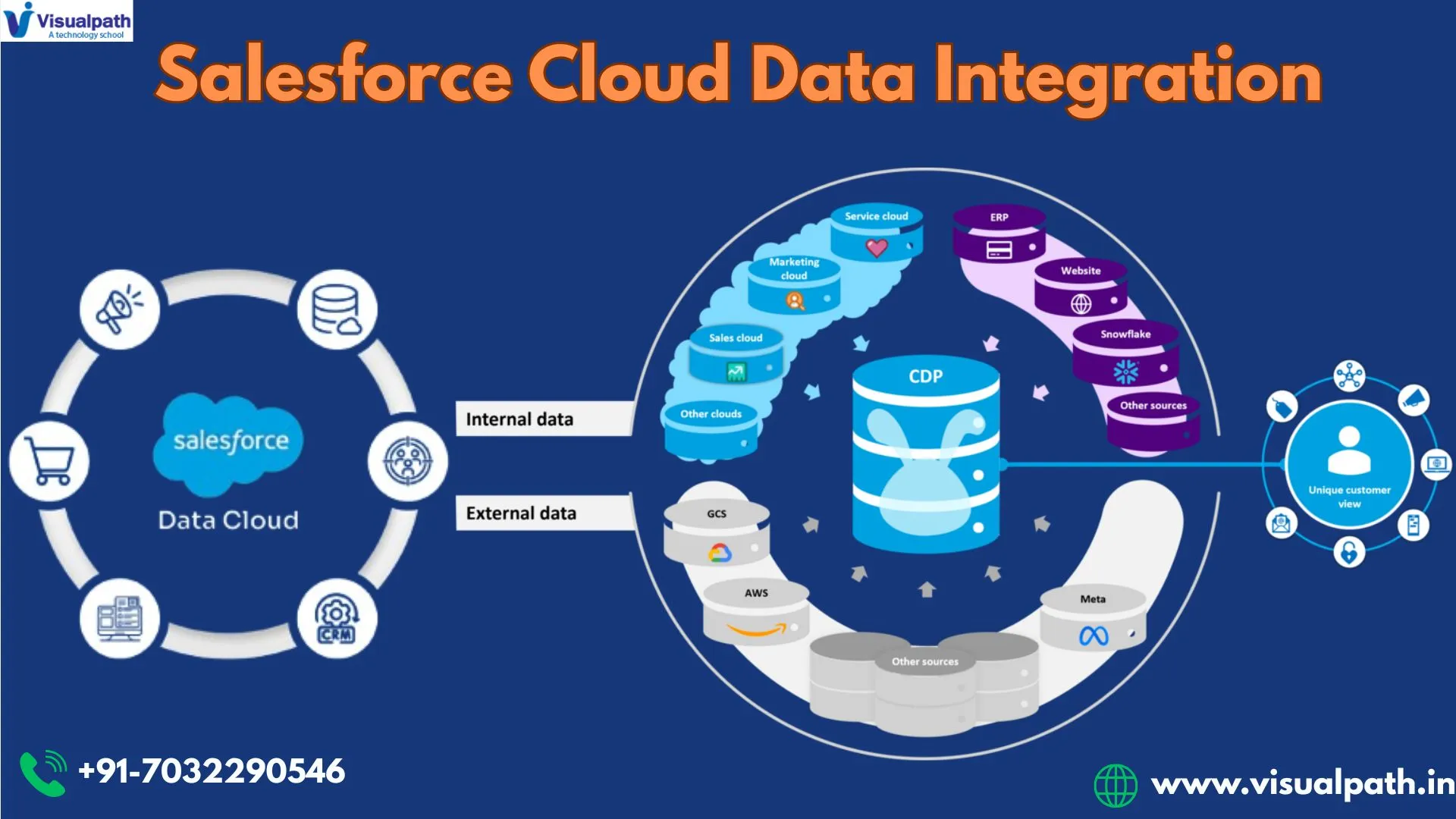Salesforce Data Cloud helps businesses categorize their audience based on demographics, behavior, and purchasing history. Businesses generate massive amounts of data daily. Managing, analyzing, and utilizing this data effectively is crucial for growth and success. Salesforce Data Cloud provides an intelligent and scalable solution that empowers businesses to unify, process, and activate data seamlessly. This article explores why Salesforce Data Cloud is the perfect tool for modern businesses aiming to enhance customer experiences, optimize operations, and drive innovation.
What Is Salesforce Data Cloud?
Salesforce Data Cloud is a powerful real-time data platform designed to help businesses consolidate data from various sources, such as CRM, third-party systems, and IoT devices. By leveraging artificial intelligence (AI) and machine learning (ML), it enables organizations to gain deeper customer insights and make data-driven decisions instantly.
1. Unified Customer Data for a 360-Degree View
One of the primary benefits of Salesforce Data Cloud is its ability to integrate data from multiple sources, creating a single source of truth for businesses. Traditional data silos make it difficult to get a complete view of customers. With Data Cloud, companies can consolidate fragmented data into a unified profile, helping teams provide personalized customer experiences.
For example, a retail company can merge purchase history, social media interactions, and support tickets to understand customer preferences better. This holistic view improves marketing, sales, and customer service strategies.
2. Real-Time Insights and AI-Driven Decision Making
Data is most valuable when it is accessible in real time. Salesforce Data Cloud enables businesses to process and analyze data instantly. This feature is essential for industries like finance, healthcare, and retail, where timely decision-making can impact customer satisfaction and revenue.
With AI-powered analytics from Salesforce Data Cloud Course Einstein, businesses can predict customer behavior, detect trends, and automate decision-making processes. This helps companies optimize marketing campaigns, recommend relevant products, and improve operational efficiency.
3. Seamless Integration with Salesforce Ecosystem
As part of the Salesforce ecosystem, Data Cloud integrates effortlessly with other Salesforce products like Sales Cloud, Marketing Cloud, and Service Cloud. This connectivity ensures smooth data flow across departments, reducing manual efforts and improving efficiency.
For instance, if a sales team updates customer preferences in Sales Cloud, the marketing team can instantly access the updated information in Marketing Cloud and tailor campaigns accordingly. This eliminates data inconsistencies and enhances cross-functional collaboration.
4. Enhanced Personalization for Better Customer Engagement
Today’s customers expect brands to deliver personalized experiences. With Salesforce Data Cloud, businesses can leverage AI-powered insights to create targeted marketing campaigns, product recommendations, and personalized customer journeys.
For example, an e-commerce platform can analyze browsing behavior and past purchases to suggest relevant products in real time. This level of personalization increases customer engagement, drives conversions, and enhances brand loyalty.
5. Strong Security and Compliance
Handling vast amounts of customer data comes with security and compliance challenges. Salesforce Data Cloud prioritizes data security with industry-leading encryption, access controls, and compliance with global regulations like GDPR and CCPA.
Businesses can ensure customer data is securely stored, processed, and managed while maintaining transparency and trust. This is particularly crucial for industries such as healthcare, banking, and legal services, where data privacy is a top priority.
6. Scalability and Flexibility for Growing Businesses
As businesses grow, so does their data volume. Salesforce Data Cloud is built to scale, allowing companies to expand their data capabilities without performance issues. Whether a business handles thousands or millions of customer records, the platform efficiently processes and analyzes data without slowing down operations.
Additionally, the cloud-based nature of the platform ensures businesses Salesforce Data Cloud Online Training can access data from anywhere, facilitating remote work and global operations.
7. Cost Savings and Operational Efficiency
By automating data management processes, Salesforce Data Cloud reduces the need for manual data entry and analysis, leading to significant cost savings. Businesses can allocate resources more efficiently and focus on strategic initiatives rather than data administration.
Conclusion
Salesforce Data Cloud is an indispensable tool for businesses looking to leverage data effectively. From providing a unified customer view and real-time insights to enhancing personalization and ensuring security, this platform empowers businesses to make smarter decisions and deliver exceptional customer experiences. As companies continue to embrace digital transformation, investing in Salesforce Data Cloud can drive efficiency, innovation, and long-term growth.
Trending Courses Are : Generative AI, Salesforce Devops, Salesforce marketing Cloud




